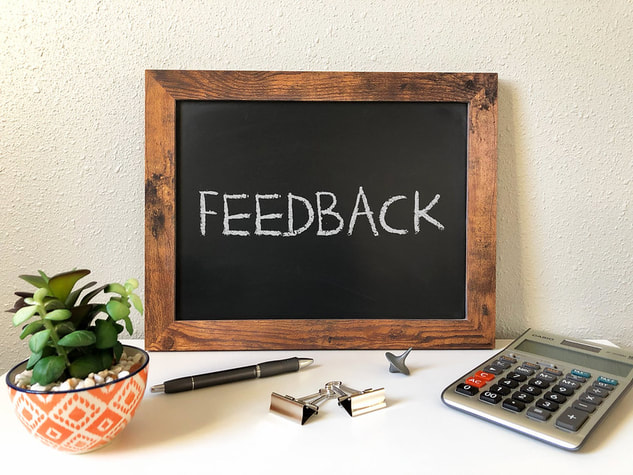Regardless of whether employees are working from home or are in the office, providing positive feedback is easy. But when it comes to constructive criticism or corrective feedback, a remote work environment may complicate effective communication. Since corrective feedback is necessary for company and individual growth, we have some tips to make your job a little easier.
Do not jump right to criticism. Before you bombard your employee with corrective criticism, create a safe environment where you can effectively communicate with one another.
Play your part. As a manager or supervisor, it is your job to check in with employees on a regular basis.
Provide or guide a clear plan of action. It is more difficult to provide virtual feedback that leads to change than it would be in an office where you can observe changes in behavior. So, remote feedback needs to include clear objectives and expectations.
Send a follow-up email.
Have empathy. Working from home is more challenging for some people than others. Make sure you listen to your employees’ needs and obstacles on a daily basis.
Do not jump right to criticism. Before you bombard your employee with corrective criticism, create a safe environment where you can effectively communicate with one another.
- Begin the conversation with a check-in.
- Approach the conversation as a two-sided, goal-oriented discussion rather than a one-sided evaluation.
- Most professionals are eager to improve their skills but are more likely to welcome constructive feedback if it is presented in a thoughtful way.
Play your part. As a manager or supervisor, it is your job to check in with employees on a regular basis.
- If employees feel disconnected from the team, they may feel less inclined to maintain or increase productivity, especially when they are working remotely.
- Provide feedback as soon as possible to preserve a collaborative and cooperative work environment. Without corrective feedback, employees may continue to contribute at varying levels of engagement, which could negatively affect the culture of your company.
Provide or guide a clear plan of action. It is more difficult to provide virtual feedback that leads to change than it would be in an office where you can observe changes in behavior. So, remote feedback needs to include clear objectives and expectations.
- Instead of telling your employee what they are doing wrong, ask supportive, open-ended questions about their work.
- Be specific. Provide examples of behavior that needs to change and explain the impact of that behavior on the team.
- Learn more about an individual’s method of productivity so you can guide employees towards accountability.
Send a follow-up email.
- If your feedback is essential to the efficiency of your business, sending a quick email with an outline of your discussion can help ensure that employees actually make improvements.
- Another benefit of a follow-up email comes in the potentially unfortunate situation where an employee does not adjust their work habits. This email can serve as a reminder for the employee or as documentation if the situation worsens.
Have empathy. Working from home is more challenging for some people than others. Make sure you listen to your employees’ needs and obstacles on a daily basis.
Andrews & Cole is a certified woman-owned boutique executive search and consulting firm with a focus on accounting and finance professionals. Clients range from start ups to Fortune 100 in nearly every industry.
|
ANDREWS & COLE
7315 Wisconsin Avenue, 1225W Bethesda, MD 20814 301-327-1774 |

